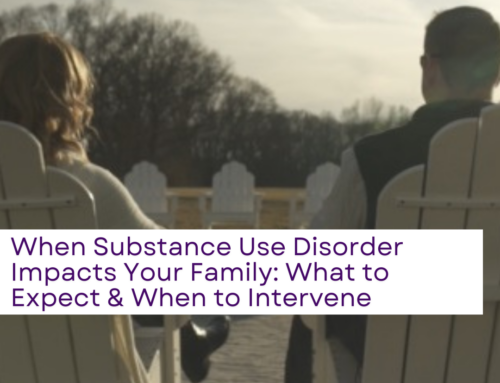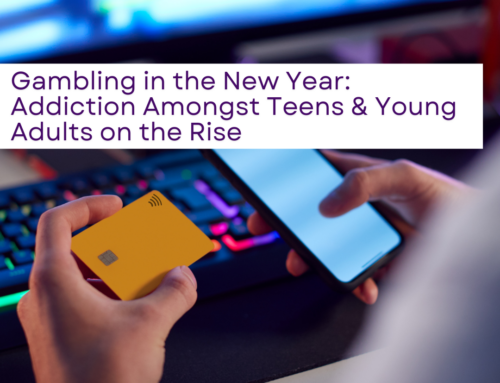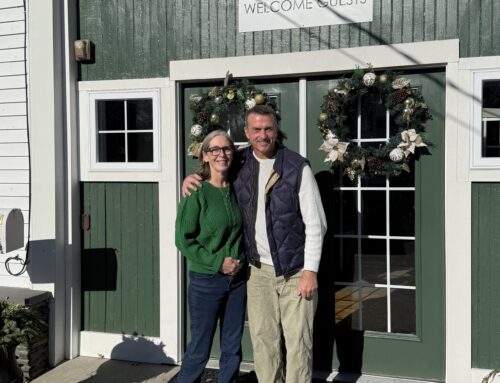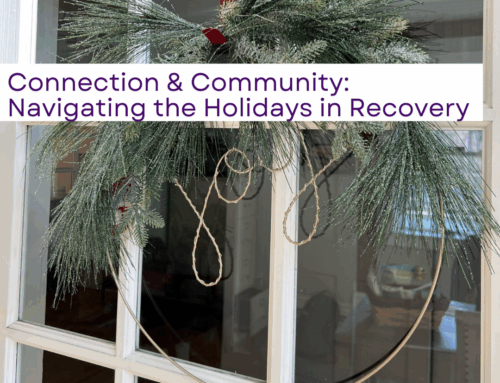First Demi Lovato relapsed, and now Ben Affleck. Relapse is all over the news these days, and while there is a lot of media attention to the more sordid side of addiction, the attention given to relapse is an opportunity to speak openly and honestly about something that affects between 40-60% of all people in recovery: relapse. (Source: National Institute on Drug Abuse).
What is Relapse?
The most common definition of relapse is when someone who has abstained from drugs and/or alcohol picks up a drink or a drug again. While relapse is usually used in the context of drinking and drugs, it applies to any time a person reverts back to unhealthy, maladaptive behaviors and stops working a program of recovery. Whether you are dealing with mental/behavioral health, eating disorders, self-harm, co-dependency or any other chronic condition, relapse is the cessation of an active program of wellness and recovery that eventually leads to a relapse back into impulsive, obsessive, and/or compulsive behaviors.
The Stages of Relapse
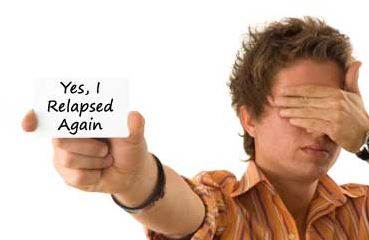
Relapse is especially confounding, because it often feels like it comes completely out of the blue, both to the relapser and those who love him/her. It seems like everything is going well and then – WHAM – a relapse happens. When asked, relapsers often struggle to give a reason, because oftentimes they don’t see it coming, either.
The reality is that relapse almost never happens out of the blue. Relapse can begin days, week, or even months before someone picks up a drink or a drug, so it’s important to know what to look for.
There are three main stages of relapse:
- Emotional
- Mental
- Physical
Emotional Relapse is the first stage, and it is a tricky one as most people are unaware that it’s happening. Powerful emotions – whether they are positive or negative – can lead the brain down paths towards familiar triggers, which lay the foundation for reverting back to drug or alcohol use. When actively using alcohol or other drugs, substances may have provided a seemingly effective, although temporary, escape from unpleasant and/or unwanted feeling of depression, anxiety, and stress. It takes an active, engaged program of recovery to replace the anesthetic effect of drugs/alcohol with healthy coping mechanisms. Some types of emotions in this stage include:
- Depression
- Irritability
- Anxiety
- Frustration
- Anger
- Resentment
- Mood swings
- Celebration
- Elation
- Changes in diet
- Changes in sleep patterns
- Feelings of isolation or loneliness.
Mental Relapse is when the mind takes overwhelming emotions and begins to rationalize them. This is a preliminary process for returning to old, unhealthy coping mechanisms. It’s important to note that it’s normal to think about using again, and it doesn’t necessarily mean someone is going to relapse. At first, these thoughts might be fleeting and somewhat easy to push out-of-mind. But remaining in the mental relapse stage for too long causes addictive centers in the brain to become activated, intensifying cravings (and your triggers) to use again. During a mental relapse, a person may experience the following:
- Glamorizing how escaping reality would feel good (“I’ll just have one to relax”)
- Justifying (“I deserve this, I’m going through a tough time”)
- Selective Memory – forgetting what drugs and/or alcohol do to you (“I wasn’t that bad”)
- Romanticizing a drink/drug – related to selective memory – (“A drink would add so much to this occasion”)
- Risky/Impulsive behavior – acting without thinking, taking on too much, hanging out with people who use (“Ready. Fire. Aim”)
- Planning – thinking about how and when you will pick up the drug or drink again with methodical rationalizations (“I can drink when I get married/go on vacation/retire”).
Physical Relapse is the final stage of relapse and it is the physical action of using or drinking again.
In this stage, emotions have gotten the best of someone through triggers that went unnoticed or unmanaged. This, in turn, brought the thought patterns itemized in the emotional relapse section to the forefront, making the idea of drinking and/or using again seem like a logical choice.
These phases act like dominos as they lead someone into a relapse situation. This is why it is crucial to recognize early on when the potential for relapse is strong, as the first two stages begin to lead a person down the path to physical relapse. Once someone has picked up a drink or drug, their disease is fully activated and rational thought/cognition become significantly impaired. Shame can take hold as well, making it more difficult to reach out for help.
Relapse Prevention

The keys to maintaining a relapse-free recovery revolve around awareness, planning, and action. When you have a plan, you become conscious of what was previously unconscious, thus cultivating awareness. We can’t change something we aren’t aware of, so part of a recovery program should be a practice of mindfulness (self-awareness). If you take time to honestly check in with yourself and how you feel (emotionally and mentally) it greatly reduces the chances the first two stages of relapse will sneak up on you. Awareness brings long-hidden behaviors, thoughts, and feelings into the light. By accessing your vulnerabilities and anticipating your actions, you stand a better chance of thwarting a relapse. Prevention requires three key factors:
- Understanding Patterns: In order to plan for the future, we need to take a hard look at the past. Were you a frequent user? A social user? What were the triggers? Did you tend to use when you were depressed and alone? Or when you were partying with others? Did alcohol or drugs help you overcome loneliness, anxiety, grief, pain, boredom, social awkwardness, or a combination of all of these factors? Have you ever relapsed before? Only by confronting your past honestly can you move forward successfully.
- Warning Signs: Take the time to evaluate and list your possible warning signs. This gives you heightened awareness and a better chance of preventing a relapse before it occurs. Working with a counselor, recovery coach, therapist, sponsor and/or spiritual advisor, identify and evaluate your major triggers. Are there people/places/things in your life that cause you stress/anxiety? Maybe it’s a job, toxic relationship, or trauma that needs to be addressed. What emotions trigger you to want to drink? Some people are more at risk when times are ‘good’ – like a graduation, wedding, promotion, or other accomplishments. Are there people in your life that trigger your desire to use? By taking stock of these vulnerabilities and creating action plans around them (again, with help) the risk of relapse is greatly reduced.
- Action Plan: Once you have taken stock of your past and identified warning signs/triggers you need a plan of action. It’s not enough to identify these things; an active program of recovery is a practice, not a thought, and it involves changing the things in your control that need to be changed (like a toxic job or relationship) and working on yourself to address the things that aren’t in your control. There are many pathways to recovery, from 12-step meetings to therapy; take time to explore everything available and figure out what works best for you.
Destigmatizing Relapse

Back to Demi Lovato and Ben Affleck. The public discourse around their relapses is a reflection about the hurdles that remain in destigmatizing relapse. Unlike the first time someone gets sober, relapse can bring a whole new layer of shame into the picture. Many people who have had some recovery and relapse feel like they “should have known better”. It is also especially difficult for loved ones to get their mind around a relapse (“I thought everything was going so well?”). Too often a relapser feels like a bad person trying to ‘get good’ again, instead of what they are which is a sick person trying to get well again.
Here is where we need to change the dialogue surrounding relapse. In some recovery communities, there is a notion that a relapse brings someone back to the very beginning, when in fact this is not the case. Everything you learn as a part of your recovery – and your relapse – is of value. When it comes to relapse, like any other chronic disease, the idea is to shorten the acuity and duration of the active relapse. It is NOT a failure to relapse, it is a sign that something in your program of recovery needs to change and/or be addressed.
“Relapse Doesn’t Have to be Part of Recovery” is an expression that is often used when it comes to relapse, and it’s not particularly helpful or realistic, as approximately half of the people in recovery deal with relapse at one point – often more than once. If a cancer patient in remission develops more cancer cells, the treating physician makes adjustments to the course of treatment. It is the same with relapse. Ask for help, identify the symptoms, and change the course of your recovery program. You are NOT back to “day one”, as every bit of knowledge you gleaned in your recovery is progress. Your recovery is not defined by relapse, but rather what you learn from it.
If a relapse happens to you, don’t despair or allow shame to block you from moving forward. You are not a failure, nor are you weak or flawed in any way. Ask someone for help, whether it’s a therapist, doctor, counselor, recovery coach, or someone else in recovery – it is nearly impossible to pull yourself out of relapse alone. Resist negative, self-deprecating thoughts, as they fuel shame and keep you stuck. Evaluate what was working – and what wasn’t – in your program of recovery and make adjustments accordingly.
Think of it this way: if you were driving to Los Angeles from Boston and you got lost in Chicago, would you drive all the way back to Boston and start over? No. You would consult people who know how to get to Los Angeles, adjust your path, and continue on. The same is true of relapse. Every bit of progress you have made is still there, and the idea is to build upon what works, cultivate awareness, keep an eye out for the signs of emotional and/or mental relapse, and make changes as needed along the way. There is hope, and you are not alone.


